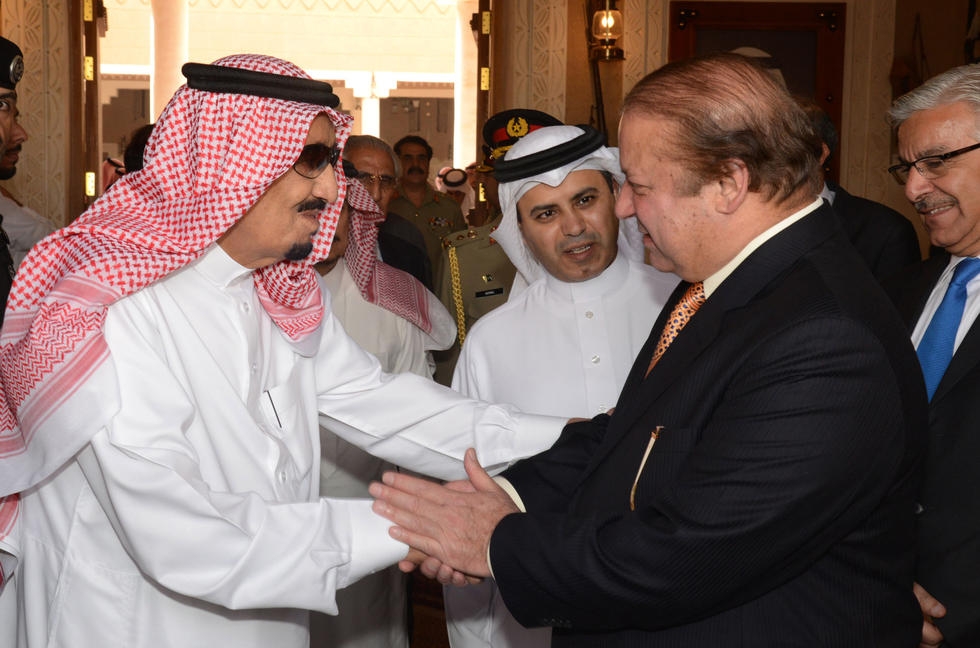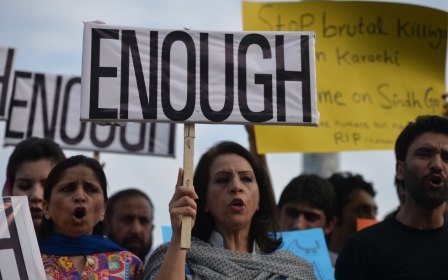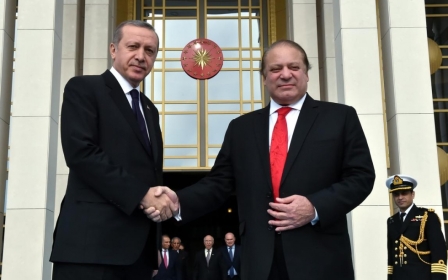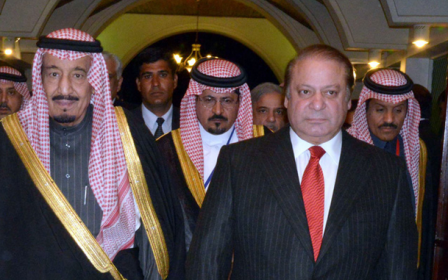Saudi Arabia asking Pakistan for nuclear weapons, US sources say

Saudi Arabia has been in discussion with Pakistan over the acquisition of a nuclear weapon, according to US sources, raising tensions over the country's longstanding regional rivalry with Iran.
“For the Saudis the moment has come,” an anonymous former US defense official told the UK’s Sunday Times.
“There has been a longstanding agreement in place with the Pakistanis and the House of Saud has now made the strategic decision to move forward.”
He denied “any actual weaponry has been transferred yet,” but warned that “the Saudis mean what they say and they will do what they say”.
Saudi Arabia has long regarded Iran's nuclear programme (which the country still insists is peaceful) with alarm and has insisted that it would attempt to match any military threat from the country.
“Whatever the Iranians have, we will have, too,” former Saudi intelligence head Prince Turki bin Faisal said last month at a conference held by the South Korean-based Asan Institute for Policy Studies, according to the New York Times, adding that any deal between Iran and the West over their nuclear programme “opens the door to nuclear proliferation, not closes it, as was the initial intention”.
Pakistan, which began its nuclear programme in the 1970s, has been a staunch ally of Saudi Arabia for decades, dating back to the countries' cooperation in fighting the Soviet occupation in Afghanistan in the 1980s.
“Nuclear weapons programmes are extremely expensive and there’s no question that a lot of the funding of Pakistan’s nuclear weapons programme was provided by Saudi Arabia,” Lord David Owen, who served as England’s foreign secretary from 1977-1979, told the Sunday Times.
“Given their close relations and close military links, it’s long been assumed that if the Saudis wanted, they would call in a commitment, moral or otherwise, for Pakistan to supply them immediately with nuclear warheads.”
However, Pakistan's refusal to take part in the Saudi-led bombing campaign in Yemen against Shiite Houthi militiamen appeared to mark a wobble in the relationship.
Israel has also long been concerned by the potential of Saudi Arabia acquiring nuclear weapons – though the country has increasingly found its interests aligned with the kingdom, Israel has been wary about any risk to its qualitative military edge which it maintains over neighbouring countries in the Middle East.
An anonymous UK military official told the Sunday Times that Western military leaders “all assume the Saudis have made the decision to go nuclear” and warned that this could spur on others.
“The fear is that other Middle Eastern powers - Turkey and Egypt - may feel compelled to do the same and we will see a new, even more dangerous, arms race."
Middle East Eye propose une couverture et une analyse indépendantes et incomparables du Moyen-Orient, de l’Afrique du Nord et d’autres régions du monde. Pour en savoir plus sur la reprise de ce contenu et les frais qui s’appliquent, veuillez remplir ce formulaire [en anglais]. Pour en savoir plus sur MEE, cliquez ici [en anglais].




